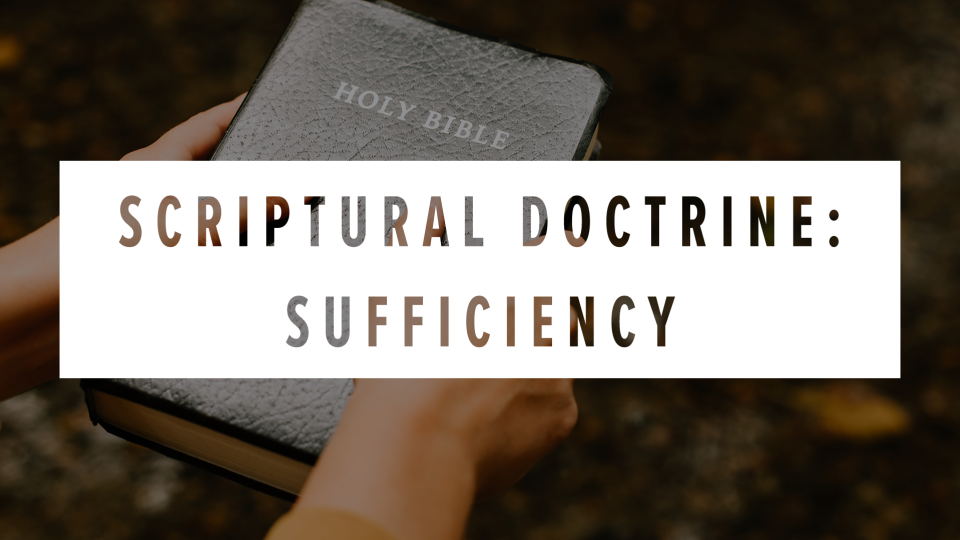By Morgan Cates
The sufficiency of Scripture plays out on two levels. First, the Bible is sufficient in that it is complete and we don’t need any more special revelation from God. Secondly, the Bible is sufficient in that it is adequate for our lives and for our knowledge of salvation. In this article, we are going to look at both of these levels separately.
Completeness
Revelation 22:18-19 –I warn everyone who hears the words of the prophecy of this book: If anyone adds to them, God will add to him the plagues described in this book, and if anyone takes words away from the book of this prophecy, God will take away his share in the tree of life and in the Holy City, which are described in this book.
Two of the last four verses in the Bible are devoted to explaining that the Bible is finished. In Revelation the apostle John commands that no one is to ever add anything to the completed Bible, and no one is to ever remove anything from the completed Bible. The Bible is finished, and nothing else written after the completion of the Bible is written by divine inspiration (refer back to the article on inspiration). There is also an argument to be made that these verses are only talking about the book of Revelation not the entire Bible. However, one line of argument that is not debatable is this: the Bible was inspired by the Holy Spirit strictly through prophets and apostles. All of those prophets and apostles have now died; there are no prophets or apostles alive today. Therefore, after the prophets and apostles died, the Holy Spirit has not given the same divine inspiration to anyone else, so no one can write anything that will be of the same substance as the Biblical writings.
Adequateness
2 Timothy 3:16-17 – All Scripture is breathed out by God and profitable for teaching, for reproof, for correcting, and for training in righteousness, that the man of God may be complete, equipped for every good work.
The first part of these two verses, “All Scripture is breathed out by God,” is the most important text in terms of the doctrine of inspiration. This section is then followed up with four examples of what Scripture is useful for doing, or, “profitable,” for. Using Scripture, we can teach, reproof, correct, and train ourselves and each other. Then in verse 17 we are told why that is, so that, “the man of God may be complete, equipped for every good work.” If we only read one book our entire lives, the Bible would be enough. The Bible is completely sufficient in leading us throughout life. We do not need anything outside of what the Bible teaches. This fact is not to be confused as condemning non-Biblical books, however, but what it is meant to do is encourage us that when we have the Bible, we have everything we will ever need to direct ourselves towards Christ. Scripture tells us all that we need to know pertaining to our salvation: faith alone in Christ alone. The Bible is sufficient in explaining things that we absolutely need to know.
Nothing else that has ever been written is equal with the Bible. That does not mean that other books are not true or even useful for our lives, but it means that nothing else in history has the same power as Scripture. One way we can live out this doctrine is by understanding that the Bible and only the Bible is the only fully adequate source of truth for our lives.
Brothers and sisters, read your Bible and take comfort in its completeness and adequacy for your life.

